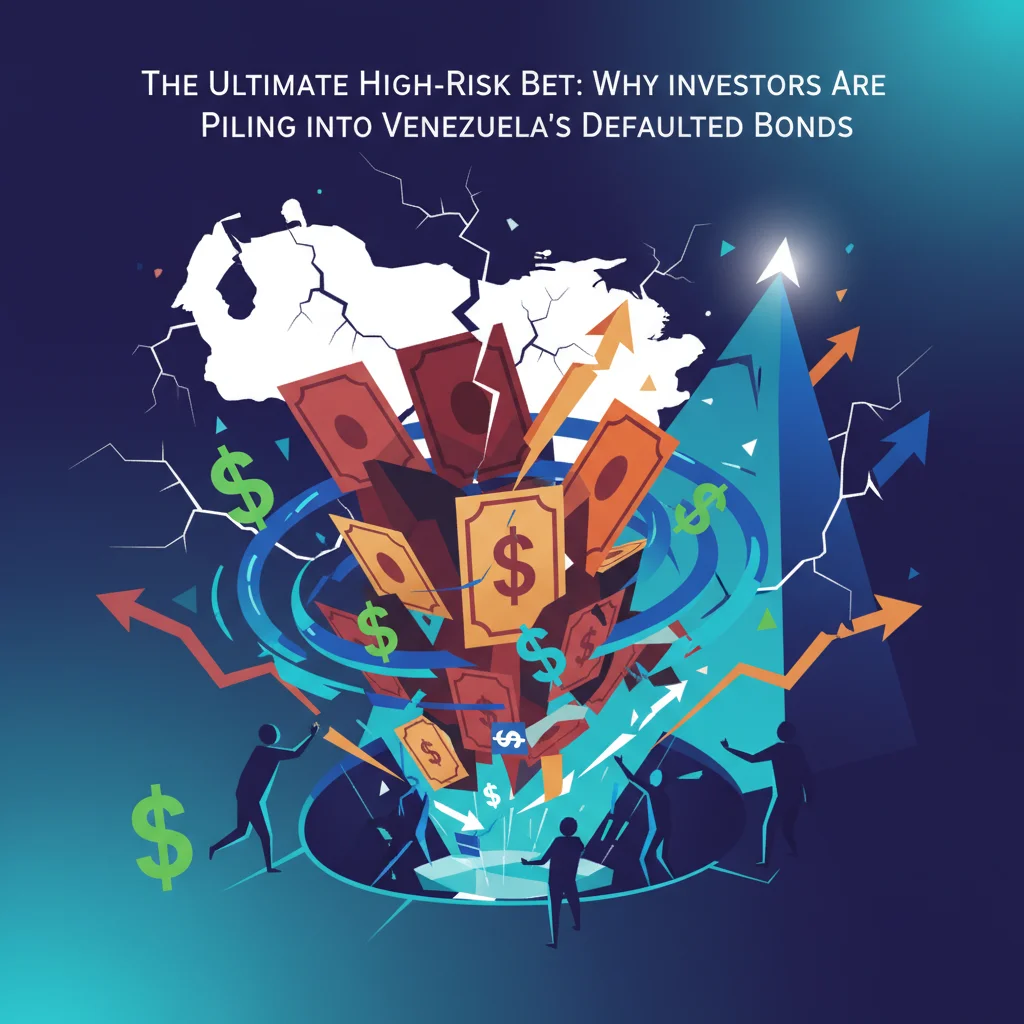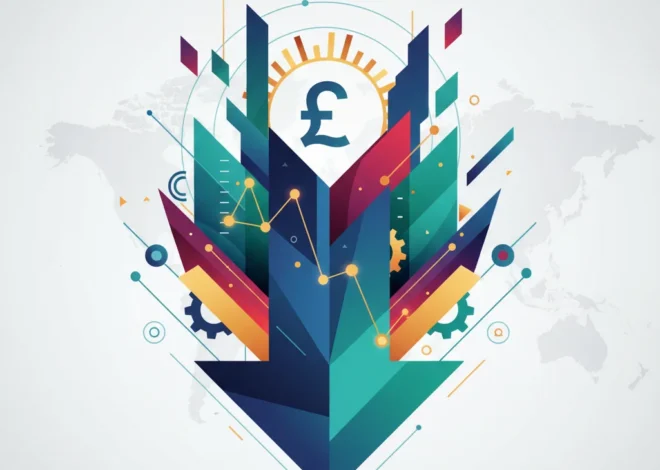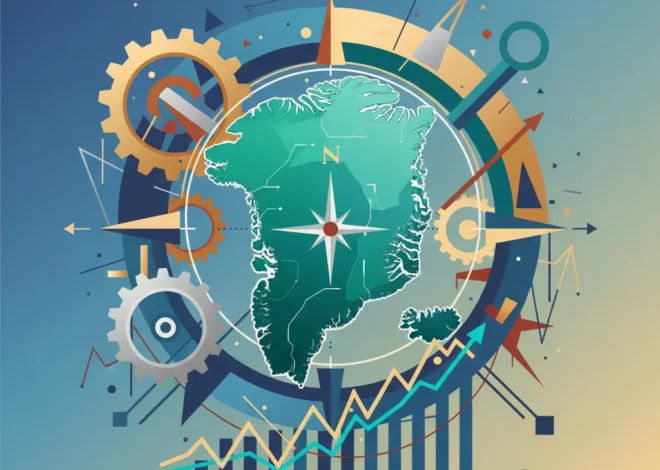
The Ultimate High-Risk Bet: Why Investors Are Piling into Venezuela’s Defaulted Bonds
The Paradox of Ruin: A Failed State’s Debt Becomes a Hot Commodity
In the world of finance, opportunities often arise from the most unexpected corners. Imagine an economy in absolute freefall, plagued by hyperinflation, political turmoil, and widespread humanitarian crisis. Logic would dictate that any financial asset tied to such a nation would be worthless. Yet, in a stunning display of market contrarianism, investors are currently engaged in a high-stakes rally, snapping up the defaulted government bonds of Venezuela. The reason? A calculated gamble that geopolitical hardball could trigger a regime change, transforming these near-worthless scraps of paper into a potential lottery ticket.
This isn’t just a minor uptick; it’s a significant surge in assets that most had written off. The catalyst appears to be a dramatic escalation of pressure from the United States, creating a fascinating and perilous intersection of international politics and high-risk investing. As capital flows into this distressed corner of the market, it raises critical questions about risk, reward, and the very nature of value in a world shaped by political power plays.
Geopolitics as a Market Catalyst: The Trump Administration’s “Hardball” Strategy
The recent rally in Venezuelan debt isn’t driven by improving economic fundamentals—far from it. The country’s economy remains in a catastrophic state. Instead, the market’s optimism is pinned directly on Washington’s increasingly aggressive stance against Nicolás Maduro’s regime. According to the Financial Times, this rally has gained significant momentum in tandem with a US military build-up in the Caribbean, ostensibly for counter-narcotics operations but widely interpreted as a direct message to Maduro.
Investors are betting that this pressure, combined with crippling economic sanctions, will ultimately force Maduro from power. The thesis is that a new, US-backed government led by opposition leader Juan Guaidó would be more willing—and able—to negotiate a favorable restructuring deal with bondholders. This potential future event is what’s being priced into the market today.
The price action tells a compelling story. Let’s look at the performance of some key Venezuelan bonds:
| Bond Issuer | Bond Maturity | Recent Price (Cents on the Dollar) | Previous Low (Cents on the Dollar) |
|---|---|---|---|
| PDVSA (State Oil Company) | 2022 | 11.25 | ~6.00 |
| Republic of Venezuela (Sovereign) | 2027 | 13.75 | ~7.50 |
| PDVSA (State Oil Company) | 2035 | 10.75 | ~5.50 |
Data sourced from market reports cited by the Financial Times. Prices are indicative and subject to high volatility.
As the table illustrates, some bonds have nearly doubled in price from their recent lows. While trading at 11 or 13 cents on the dollar is still a sign of deep distress, the upward trajectory signals a significant shift in market sentiment. This is a classic example of how geopolitical events can become the primary driver of asset prices, completely overshadowing traditional economic indicators. For traders, this transforms the analysis from a question of financial modeling to one of political forecasting.
The Vulture’s Feast: Who Is Buying This Distressed Debt?
The world of distressed debt investing is not for the faint of heart. The primary players are specialized hedge funds, often pejoratively called “vulture funds,” that have the capital, legal firepower, and ironclad risk tolerance to buy assets from failed states or bankrupt companies. Their strategy is simple in theory but complex in execution: buy debt for pennies on the dollar and then, through negotiation or litigation, recover a much larger amount.
In Venezuela’s case, the country has defaulted on an estimated $60 billion in bonds issued by both the sovereign government and the state-owned oil company, PDVSA. This creates a massive, albeit risky, playground for these specialized investors. They are not just passive observers; they are actively war-gaming the potential outcomes of a post-Maduro debt restructuring.
The legal complexities are immense. A key point of contention is the legitimacy of bonds issued by the Maduro regime after the opposition-controlled National Assembly was sidelined. A future Guaidó-led government might challenge the validity of certain debts, creating a hierarchy of winners and losers among bondholders. This legal ambiguity is a major risk, but it’s also where seasoned distressed debt investors believe they can find an edge through deep legal and political analysis.
The Restructuring Endgame: From Default to Recovery
For investors, the ultimate prize is not the current price surge but the “recovery value” of the bonds in a future restructuring. When a country defaults, it doesn’t mean the debt simply vanishes. It enters a prolonged period of negotiation with its creditors to agree on a new payment plan. This typically involves:
- Haircuts: Creditors agree to accept less than the full face value of the debt.
- Maturity Extensions: Payment deadlines are pushed further into the future.
- Coupon Reductions: Interest payments are lowered.
Investors buying bonds at 10-15 cents on the dollar are betting that the eventual recovery value will be significantly higher—perhaps 30, 40, or even 50 cents on the dollar. If a new government, eager to regain access to international capital markets, strikes a relatively generous deal, the returns could be astronomical. This is precisely the scenario that played out with Argentinian debt, where holdout creditors who fought for years eventually secured massive payouts.
However, the risks are equally monumental. A regime change may not happen. If it does, the new government could be hostile to foreign creditors and offer a punishingly low recovery value. Or, the country’s economic situation could be so dire that it is simply unable to pay, regardless of its intentions. Every dollar invested could be lost entirely.
The Future of Sovereign Debt and the Role of Financial Technology
The Venezuelan saga is a powerful case study in the enduring complexities of sovereign debt and geopolitical risk. It underscores how deeply intertwined the worlds of politics and the stock market have become. For business leaders and investors, it’s a reminder that a country’s political trajectory can be a more potent valuation metric than its GDP or inflation rate.
Looking ahead, this crisis also prompts a conversation about the future of sovereign banking and debt resolution. The current process is often opaque, litigious, and inefficient, taking years to resolve. This is where innovation in financial technology could play a transformative role. Could future sovereign bonds be issued on a blockchain, creating an immutable and transparent ledger of ownership? This could streamline the identification of bondholders and simplify negotiations during a restructuring.
Furthermore, smart contracts could potentially automate certain aspects of debt agreements, building in predefined clauses for handling defaults. While this `fintech`-driven future is still a long way off, the chaos of situations like Venezuela’s highlights the urgent need for more robust and transparent systems in international economics and finance.
Conclusion: A High-Stakes Wager on a Nation’s Future
The surge in Venezuelan bonds is more than just an obscure market event; it is a microcosm of modern geopolitical finance. It’s a story of audacious risk-taking, where investors are making a direct bet on the outcome of a superpower’s foreign policy. The potential for enormous profit is matched only by the risk of total loss, with the fate of 30 million Venezuelans hanging in the balance.
For finance professionals and savvy investors, this situation offers a masterclass in distressed debt trading, political risk analysis, and the powerful forces that can move markets in defiance of all conventional wisdom. Whether this gamble pays off remains to be seen, but it has undeniably turned the defaulted debt of a failed state into one of the most compelling and dangerous trades on Wall Street.


